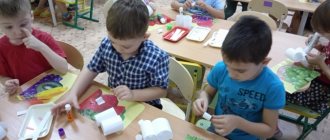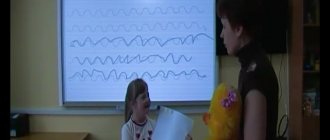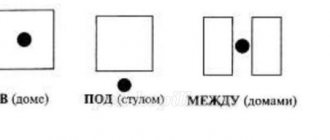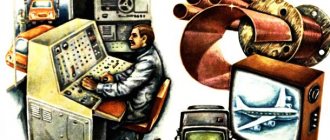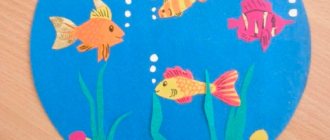Professions related to drawing: complete list
For anyone who is wondering what professions are related to drawing, we have compiled a complete list of specializations in the following areas:
| Design | IT sphere | Architecture and interior | Museums and exhibition halls | Film industry, theater and animation | Pedagogy | Fashion & Style | Handmade |
| Illustrator | Game artist | Architect | Restorer | Production designer | Art teacher | Fashion designer | Calligrapher |
| Graphic Designer | UX/UI designer | Interior designer | Art critic | Decorator | Academic drawing teacher | Confectioner | Cartoonist |
| Web designer | Digital designer | 3D modeler | Copyist | Cartoonist | Tutor | Visagiste | Sculptor |
| layout designer | Mobile Application Designer | Landscape designer | Miniaturist | 3D animator | Stylist | Master of enamel painting | |
| Architect VR | Portrait Expert | Dresser | Photographer | Mosaicist | |||
| Render artist (visualizer) | Makeup artist | Florist | Stained glass artist | ||||
| Puppet Master | Jeweler | Incrustor | |||||
| Master tattoo | Glassblower | ||||||
| The artist himself |
And these are not all creative professions related to drawing. Let's take a closer look at the most popular types of jobs on the list and find out what skills are required from a person for this specialty and whether there are prospects for career growth.
Where to study
You can get an art education in universities, art schools, or at home from experienced masters of fine art. The following institutions are considered the most prestigious for obtaining such a specialty:
- St. Petersburg State University of Technology and Design.
- Moscow State University of Design and Technology.
- Tolyatti State University.
- Arctic State Institute of Arts and Culture.
What do you have to do at work and specializations?
Daily responsibilities are quite extensive and largely depend on the specialist’s specialization. However, there is also a range of processes common to all specialists:
- Search for customers. The artist himself does this. To do this, he participates in exhibitions and presentations. Also, the search for customers is often carried out via the Internet. Many artists work as freelancers.
- Meeting customers and finding out their needs. Often clients order paintings as gifts, illustrations, portraits, caricatures. The artist must understand as clearly as possible what the clients want. In addition, it is important to demonstrate your work so that customers understand the style in which the author writes. After all, most of the names are not clear to ordinary people. It is precisely because of such mistakes that conflict situations arise.
- Thinking over the concept of a future work. The artist thinks through what he would like to depict and in what context.
- Purchase of necessary materials.
- Creating a sketch. This is a general outline of the future picture, with a visualization of the future location of key objects. It can be compared to a utility diagram.
- The actual drawing process itself. This is the longest stage. It is usually tied to deadlines. The creative process can take place over several months and even years.
- Framing the picture and preparing for delivery.
- Delivery of completed work and settlement with the buyer.
This is far from a complete range of artist responsibilities. It can only expand and increase depending on the specialization of the master.
Who is this profession suitable for?
This profession is suitable for creative people with a well-developed imagination. A true artist knows how to draw inspiration from everything that surrounds him and interpret his emotions into works of fine art.
In addition, self-organization is an important quality for any artist. After all, the working day is mainly structured depending on orders and inspiration. A master must be able to force himself to work even through “I don’t want to.”
Communication skills are very important. After all, an order depends 50% on whether the creator of works of art can please future customers.
Description
The profession of an artist is a creative work that requires good imagination, inspiration and mastery of drawing techniques. There are a lot of areas of artistic activity, so the profession has a number of narrower specializations:
- Illustrator. A specialist who creates pictures that describe text.
- Graphic artist. A master working in one contrasting color. Most often it is black. Pencil, ink, etc. are used for drawings.
- Cartoonist. This is a specialist who creates funny portraits or parodies of current events.
- Painter. The name of this industry is the most ancient and it is characterized by drawing from life.
- Fashion designer. This specialist specializes in creating sketches of new clothing collections. An artist who designs an outfit, a trendsetter.
- Copy artist. A specialist who creates copies of paintings and reproductions.
- Restoration artist. These specialists know exactly how to restore masterpieces to their original appearance.
- Specialist in the field of miniature painting.
- Portrait artist. This is working with people in order to fully convey their external characteristics. The transfer can be partial, it all depends on the style in which the master works.
There are many other equally popular areas of activity. The specifics of work in each of them have a number of differences. But one thing remains common - the art of conveying thoughts and fantasies through drawing.
What specialties to study?
In order to become an artist, it is not necessary to receive an education. The main thing is talent, but the absence of a diploma will not allow you to get a good job. Therefore, you should enroll in the following specialties:
- graphic arts;
- design;
- painting;
- artist of monumental and decorative art (painting);
- arts and crafts and folk crafts;
- theatrical and decorative arts;
- fine arts and drawing.
There are other highly specialized specialties.
Where to start for a novice artist?
Universal advice: start studying this area with basic knowledge of graphic drawing and painting.
This is a necessary base with which you will learn to see composition, color combinations, volumes, and the transition from light to shadow. After this, learning highly specialized knowledge and skills will be much easier.
Once you have acquired the basic skills in your chosen specialty, you can immediately look for a job. Get a job on the staff of a company where they will train you along the way and show you all the intricacies of the work. At the same time, develop your personal brand and start taking freelance orders.
The main thing is to work steadily, do not take long breaks. Even if there is no inspiration, rest assured that it will come as soon as you pick up the instrument.
